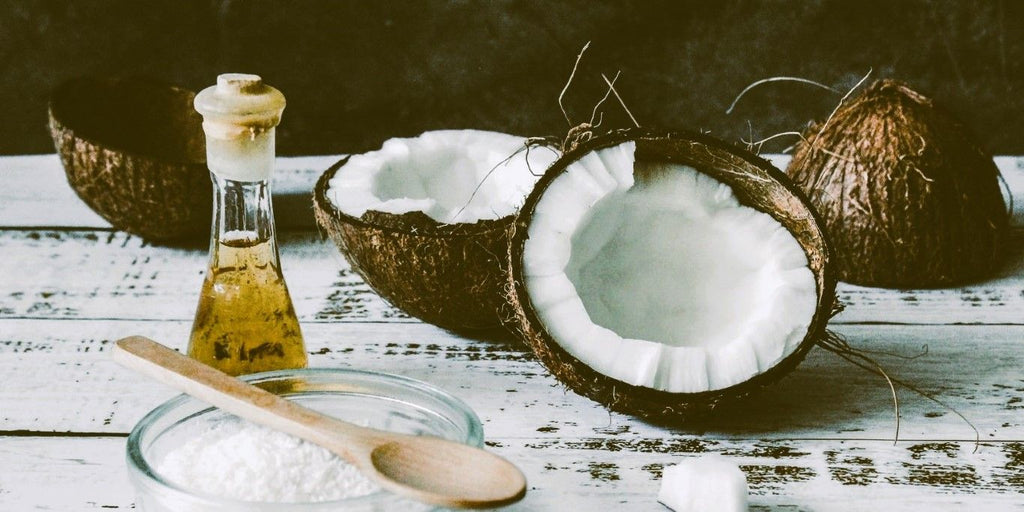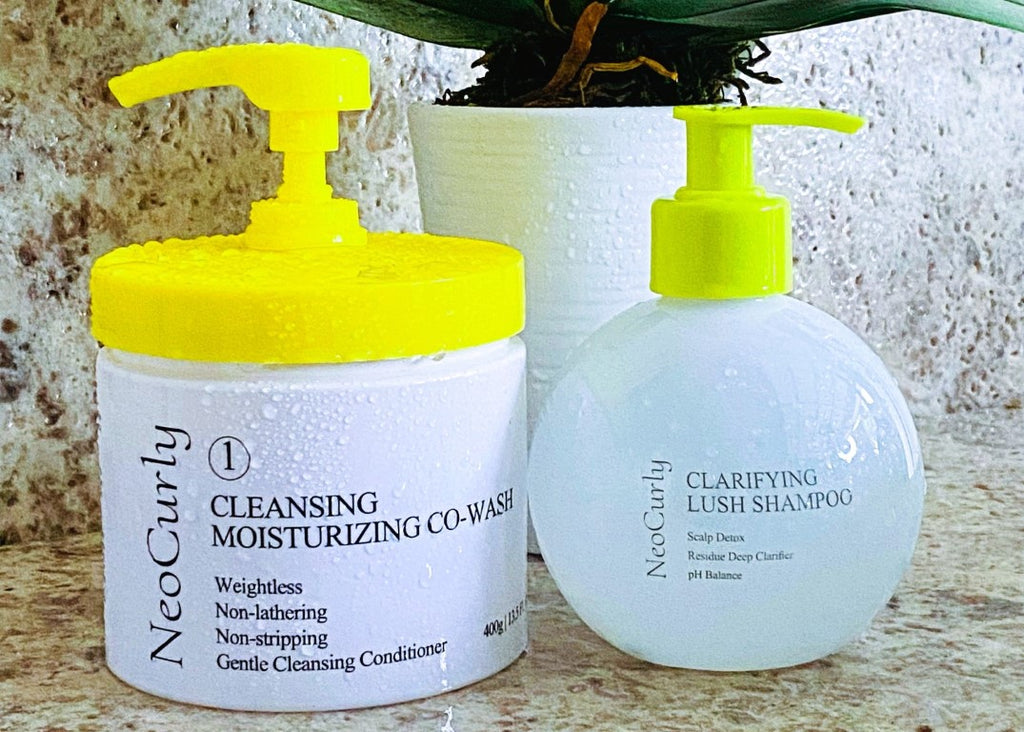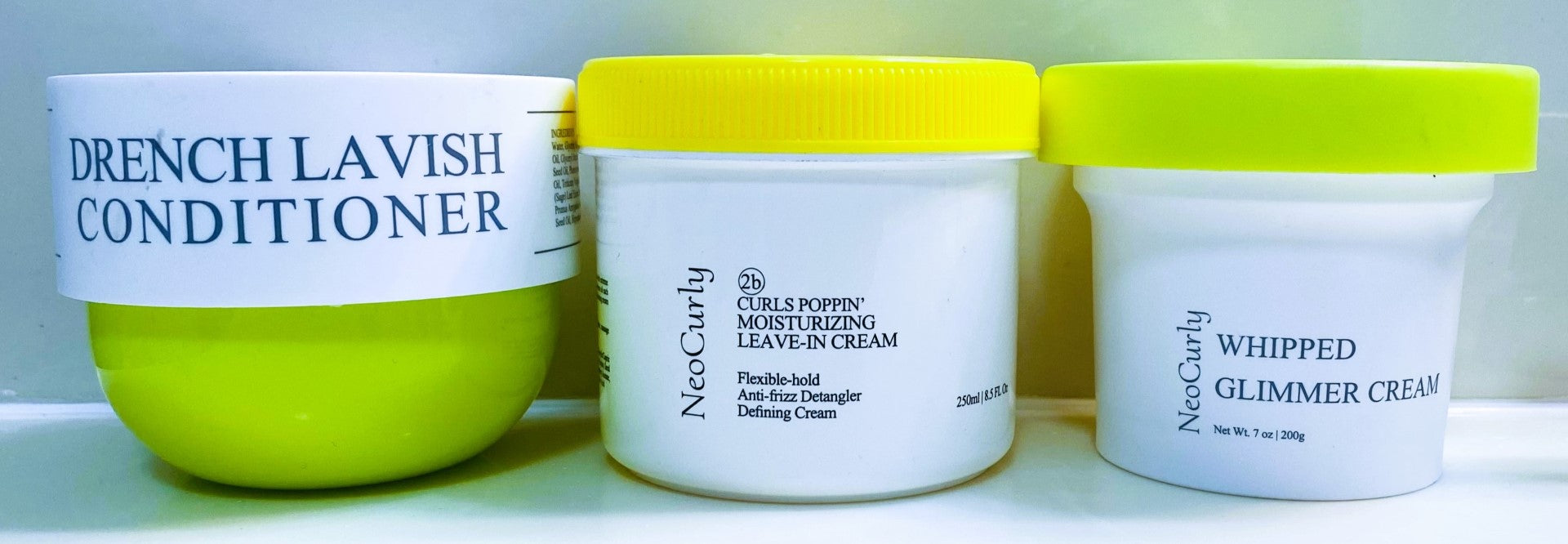Dry Scalp Relief: Expert Strategies for Recovery
In this comprehensive guide, we'll delve into the intricate world of dry scalp - an often overlooked but prevalent hair concern affecting millions worldwide. Understanding the root causes and identifying the telltale signs of dry scalp is crucial for embarking on a journey towards healthier, happier hair.
Understanding Dry Scalp Influence on Hair Well-being
Dry scalp, known medically as xerosis cutis, is a condition characterized by the scalp's inadequate production of natural oils, also known as sebum, by the sebaceous glands. This lack of oil leaves the scalp dry, lacking essential moisture, and prone to irritation. Unlike dandruff, which is often caused by an overgrowth of yeast, dry scalp arises from factors such as dehydration, environmental stressors, and insufficient nourishment. These factors contribute to a compromised scalp barrier, leading to discomfort and flakiness. Understanding the distinct characteristics of dry scalp versus dandruff is crucial for implementing targeted treatment approaches and achieving optimal scalp health.

Recognizing Dry Scalp: Identifying Common Symptoms
Recognizing the symptoms of dry scalp is the first step towards effective treatment. Individuals suffering from this condition often report:
-
FLAKINESS: One of the most noticeable symptoms of dry scalp is flakiness, where small grayish or white flakes appear on the scalp and may become visible on clothing.
-
ITCHING: Dry scalp often leads to itching, which can vary in intensity from mild to severe. Constant scratching can further irritate the scalp and exacerbate the condition.
-
TIGHTNESS: A sensation of tightness or tenderness on the scalp is common with dryness. This discomfort may be more pronounced after washing the hair or in dry weather conditions.
-
REDNESS: Dry scalp can cause inflammation, leading to redness or irritation of the scalp. This redness may be localized to certain areas or affect the entire scalp.
-
SENSITIVITY: Dry scalp may make the scalp more sensitive to external factors such as sunlight, harsh hair care products, or changes in temperature.
-
HAIR DRYNESS: Dry scalp often accompanies dry, brittle hair that lacks shine and elasticity. The hair may appear dull and lifeless, with an increased tendency to breakage.
-
SCALP ODOR: In severe cases, dry scalp can lead to the development of an unpleasant odor due to the accumulation of dead skin cells and bacteria on the scalp.
-
POST-WASH SCALP TIGHTNESS: Some individuals may experience scalp tightness or discomfort immediately after washing their hair, as the natural oils are stripped away, leaving the scalp feeling dry and tight.
Recognizing these common symptoms of dry scalp is essential for prompt identification and appropriate treatment. If you experience persistent or severe symptoms, it's advisable to consult a dermatologist or healthcare professional for personalized guidance and management strategies.
Understanding Dry Scalp's Influence on Hair Well-being
Beyond the obvious discomfort, dry scalp can wreak havoc on the overall health and appearance of your hair. The lack of moisture not only affects the scalp but also extends to the hair shafts, leaving them brittle, dull, and prone to breakage. Moreover, the incessant scratching prompted by itchiness can damage the hair follicles, leading to hair loss and thinning over time.
By shedding light on the causes and symptoms of dry scalp, we empower individuals to take proactive steps towards restoring balance and vitality to their hair and scalp. Stay tuned as we unravel the secrets to effective dry scalp treatment and unveil natural remedies for nourished, resilient locks.
Identifying the Root Causes of Dry Scalp
Dry scalp can stem from a variety of factors, ranging from external environmental triggers to internal health conditions. Understanding the root causes is essential for effectively managing and treating this common hair concern.
1) Environmental Factors
WEATHER: Harsh weather conditions, particularly cold and dry climates, can strip the scalp of its natural oils, leading to dryness and irritation. Similarly, excessive exposure to sunlight can dehydrate the scalp, exacerbating dryness.
POLLUTION: Air pollution, including pollutants like dust, smoke, and chemicals, can accumulate on the scalp and disrupt its natural balance. This can result in clogged pores and impaired oil production, contributing to dry scalp issues.
2) Hair Care Practices
OVER-WASHING: Washing the hair too frequently can strip away the scalp's natural oils, leaving it dry and prone to irritation. Additionally, using hot water or harsh shampoos can further exacerbate the problem by stripping away moisture.
HARSH PRODUCTS: Certain hair care products, such as shampoos containing sulfates or alcohol-based styling products, can be overly drying and irritating to the scalp. It's essential to choose gentle, hydrating products formulated specifically for dry scalp conditions.
3) Health Conditions
PSORIASIS: Psoriasis is a chronic autoimmune condition characterized by the rapid turnover of skin cells, leading to red, scaly patches on the scalp and other areas of the body. These patches can cause itching, irritation, and flaking, contributing to dry scalp symptoms.
ECZEMA (Seborrheic Dermatitis): Eczema, also known as seborrheic dermatitis when it affects the scalp, is a common inflammatory skin condition. It can cause redness, itching, and flaking of the scalp, resulting in dry, irritated patches.
By identifying and understanding these root causes of dry scalp, individuals can take proactive steps to mitigate environmental triggers, adjust their hair care routines, and seek appropriate medical treatment for underlying health conditions. This holistic approach is key to achieving long-term relief and maintaining a healthy scalp and hair.
Natural Remedies for Dry Scalp Treatment
Combatting dry scalp doesn't always require expensive treatments or harsh chemicals. Mother Nature provides a plethora of natural remedies that can soothe, moisturize, and restore balance to your scalp. Here, we explore three potent remedies that harness the power of nature to alleviate dry scalp discomfort.
1) Coconut Oil Treatment
Benefits and Application Method: Coconut oil is a versatile remedy known for its moisturizing properties. Rich in fatty acids, it penetrates deep into the scalp, replenishing lost moisture and nourishing the skin. To apply, warm a small amount of coconut oil in your hands and massage it gently into your scalp. Leave it on for at least 30 minutes, or overnight for maximum benefit, before rinsing thoroughly with a gentle shampoo.
RELATED ARTICLE: Utilizing Coconut Oil Benefits for Textured Hair
Frequency of Use and Expected Results: For optimal results, incorporate coconut oil treatment into your weekly hair care routine. Consistent application can help alleviate dryness, reduce itchiness, and promote healthier, shinier hair. Over time, you'll notice a significant improvement in scalp hydration and overall comfort.
2) Aloe Vera Gel Application
Soothing Properties for Irritated Scalp: Aloe vera gel is renowned for its soothing and healing properties, making it an ideal remedy for dry, irritated scalps. Rich in vitamins, minerals, and enzymes, it hydrates the scalp while calming inflammation and reducing itchiness. To use, simply apply a generous amount of pure aloe vera gel directly to your scalp, massaging it in gently. Leave it on for 20-30 minutes before rinsing thoroughly with lukewarm water.
RELATED ARTICLE: Aloe Vera Benefits for Scalp and Hair Wellness
DIY Recipes and Store-Bought Options: For added benefits, consider mixing aloe vera gel with other natural ingredients like honey, yogurt, or essential oils to create customized hair masks. Alternatively, many health food stores and online retailers offer ready-to-use aloe vera gel products specifically formulated for hair and scalp care.
3) Apple Cider Vinegar Rinse
pH Balancing Effect on Scalp: Apple cider vinegar (ACV) is a natural astringent that helps restore the scalp's pH balance, creating an environment conducive to healthy hair growth. It also has antimicrobial properties that can help combat scalp infections and dandruff. To make an Apple cider vinegar (ACV) rinse, dilute one part ACV with three parts water and apply it to your scalp after shampooing. Leave it on for a few minutes before rinsing thoroughly with water.
RELATED ARTICLE: Enhancing Scalp Health with Apple Cider Vinegar
Precautions and Tips for Safe Application: While ACV can be highly effective, it's essential to dilute it properly to avoid irritation or damage to the scalp. Start with a lower concentration of ACV (e.g., one tablespoon per cup of water) and adjust as needed based on your scalp's sensitivity. Additionally, avoid getting ACV in your eyes or open wounds, as it can cause stinging or burning sensations.
By incorporating these natural remedies into your hair care routine, you can nourish and hydrate your scalp effectively while avoiding harsh chemicals and additives. Experiment with different ingredients and techniques to find the combination that works best for you, and say goodbye to dry scalp woes once and for all.
Soothing Oils: Natural Remedies for Dry Scalp
When it comes to addressing dry scalp concerns, essential oils are valuable natural remedies renowned for their therapeutic properties. Let's explore how Tea tree oil, Lavender oil, Rosemary oil, Jojoba oil, and Avocado oil can work wonders in providing relief and nourishment to a dry scalp.
1) Antifungal properties of Tea Tree Oil
Tea tree oil boasts potent antifungal properties, making it highly effective in treating scalp infections such as dandruff and seborrheic dermatitis. Its antimicrobial nature combats fungal overgrowth, reduces inflammation, and relieves itchiness, promoting a healthier scalp environment. Blending tea tree oil with carrier oils like coconut or olive oil enhances its efficacy and reduces the risk of skin irritation. When applying, mix a few drops of tea tree oil with a tablespoon of carrier oil and massage it gently into the scalp, leaving it on for 30 minutes before rinsing thoroughly.
RELATED ARTICLE: Maximizing Tea Tree Oil Benefits for Curly Hair Health
2) Lavender Oil soothes inflamed scalp
Lavender oil's calming effects make it ideal for soothing an inflamed scalp. It reduces redness, swelling, and irritation, providing instant relief from dry scalp discomfort. Additionally, mixing lavender oil with other oils like jojoba or coconut oil enhances its benefits, resulting in a more nourished and hydrated scalp. To incorporate lavender oil into your hair care routine, add a few drops to your shampoo or conditioner, or dilute it with a carrier oil and massage it into the scalp before shampooing.
RELATED ARTICLE: Lavender Oil Benefits for Curly Hair
3) Rosemary Oil boosts scalp circulation
Rosemary oil is revered for its ability to stimulate blood circulation to the scalp, promoting hair growth and overall scalp health. By increasing blood flow to the scalp, rosemary oil delivers essential nutrients and oxygen to the hair follicles, strengthening them and reducing dryness. Incorporating rosemary oil into your hair care routine can result in a nourished, revitalized scalp. To use, add a few drops of rosemary oil to your shampoo or conditioner, or dilute it with a carrier oil and massage it into the scalp before shampooing.
RELATED ARTICLE: Rosemary Oil for Hair Growth Benefits
4) Renowned Jojoba Oil mimics scalp sebum
Jojoba oil offers antifungal properties and closely resembles the scalp's natural sebum, making it an excellent moisturizer for dry scalp conditions. Rich in vitamins and minerals, jojoba oil nourishes the scalp, promotes hair growth, and restores balance to the skin. To incorporate jojoba oil into your hair care routine, apply a few drops directly to the scalp and massage it in gently. Alternatively, mix jojoba oil with other essential oils for added benefits.
RELATED ARTICLE: Jojoba Oil Benefits for Luscious Curls
5) Avocado Oil rich in healthy fats and antioxidants
Avocado oil is rich in monounsaturated fats and antioxidants, making it a potent moisturizer and nourisher for the scalp. Loaded with vitamins A, D, and E, along with potassium, avocado oil supports scalp health and strengthens hair follicles. To use avocado oil, massage a small amount into the scalp using circular motions to stimulate blood flow and enhance absorption. For added nourishment, consider blending avocado oil with coconut or olive oil before application. Leave the oil on for at least 30 minutes before rinsing thoroughly for optimal results.
RELATED ARTICLE: Avocado Oil Transformative Benefits for Your Curls
For those seeking convenience and a tidy hair care routine, there's a plethora of ready-to-use products infused with essential oils like tea tree oil, lavender oil, rosemary oil, jojoba oil, and avocado oil. These oils feature prominently in a wide array of hair care items, spanning from clarifying shampoos to co-washes, curl creams, leave-in conditioners, and serums. By embracing the potency of these essential oils, you can effectively address dry scalp symptoms and cultivate a healthier, more harmonized scalp. Explore various oils and application methods to discover the blend that suits you best, and relish in the natural, holistic relief they provide for dry scalp concerns.
Active Steps: Lifestyle Changes for Scalp Relief
Addressing dry scalp concerns goes beyond topical treatments; it requires adopting holistic lifestyle changes to promote scalp health from within. By incorporating simple yet effective habits into your daily routine, you can prevent and alleviate dry scalp symptoms while promoting overall hair and scalp wellness.
1) Hydrating and nourishing your scalp:
Proper hydration is essential for maintaining optimal scalp health. Ensure you're drinking an adequate amount of water each day to keep your body and scalp hydrated from the inside out. Additionally, focus on incorporating nutrient-rich foods into your diet, such as fruits, vegetables, lean proteins, and healthy fats. These foods provide essential vitamins and minerals that nourish the scalp and support hair growth.
2) Developing a tender hair care approach:
Overwashing and harsh hair care products can strip the scalp of its natural oils, exacerbating dryness and irritation. Opt for a gentle shampoo, co-wash and conditioner specifically formulated for dry scalp or sensitive skin. Limit washing your hair to 2-3 times per week to prevent over-drying, and use lukewarm water instead of hot water, which can further strip away moisture. When styling your hair, avoid using heat tools excessively, and opt for protective hairstyles that minimize tension on the scalp.
3) Managing stress to alleviate scalp irritation:
Stress is a common trigger for scalp issues, including dryness, itchiness, and inflammation. Incorporating stress management techniques into your daily routine can help reduce scalp irritation and promote overall well-being. Practice relaxation techniques such as deep breathing, meditation, or yoga to alleviate stress and tension. Additionally, prioritize self-care activities that bring you joy and relaxation, whether it's reading a book, taking a leisurely walk, or spending time with loved ones.
By implementing these lifestyle changes, you can create a supportive environment for your scalp to thrive, preventing and treating dryness while promoting overall health and vitality. Remember to be consistent and patient, as it may take time to see significant improvements. With dedication and a holistic approach, you can achieve a healthy, hydrated scalp and luscious locks.
Quick Recap: Proven Solutions for Dry Scalp Issues
In scalp care, customizing your routine to address your specific scalp type and concerns is crucial for maintaining healthy hair follicles and nourishing your scalp skin effectively. By consistently tending to your scalp, you not only build a solid foundation for your hair but also ensure the ongoing health and nourishment of your scalp skin.
Treatment for dry scalp isn't a one-size-fits-all approach, as its effectiveness varies from person to person. We encourage you to explore different remedies, experiment with various oils and ingredients, and find the combination that best suits your unique scalp needs. This journey toward alleviating dry scalp symptoms is continual, offering ongoing opportunities for learning and discovery.
Explore NeoCurly's Solutions For Scalp Discomfort
Experience the transformative benefits of NeoCurly's specialized product range, meticulously formulated to address the unique needs of your hair and scalp. Our range offers comprehensive solutions for dry, itchy, and flaky scalp concerns, providing immediate relief and long-term nourishment. Each product is carefully crafted to restore balance, soothe discomfort, and promote overall scalp health, ensuring your hair receives the care it deserves.
Whether you're in need of a nourishing shampoo to cleanse and hydrate or a revitalizing treatment to invigorate your curls, NeoCurly has the perfect solution for you. Unlock the full potential of your curls with our premium hair care products, tailored to deliver optimal results. Join the NeoCurly community and embark on a journey of empowerment, education, and expert guidance as you discover the perfect products for your unique hair type. With NeoCurly as your partner, you can confidently maintain healthy, beautiful curls that radiate vitality and strength.
 Skip to content
Skip to content





